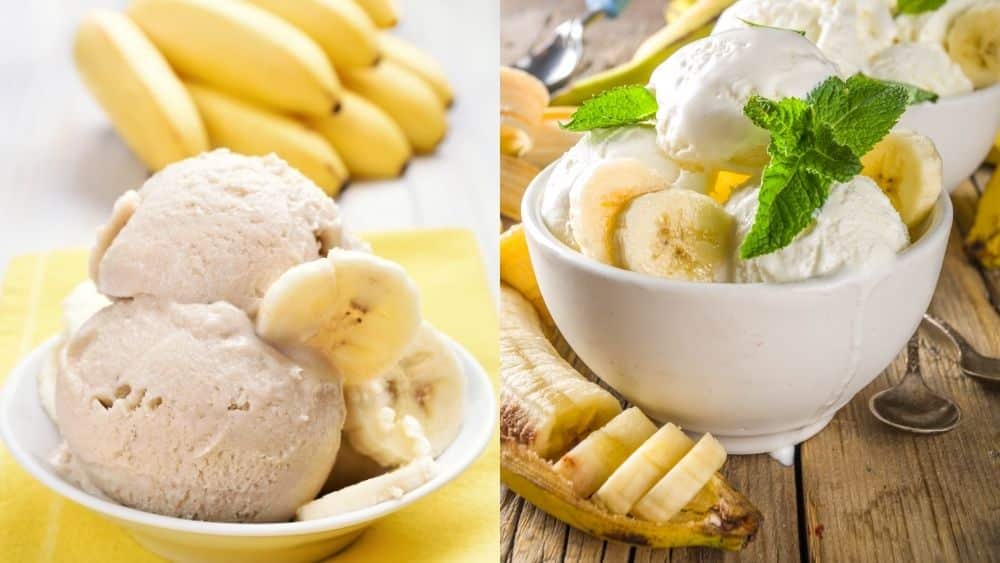Yes, bananas are good for babies as they contain vitamins, minerals, and nutrients that are needed for their growth, development, and healthy weight gain.
Bananas are also an ideal fruit for babies when they start weaning, as it’s soft and mushy, making it easier for them to swallow. Peeled ripe banana for infants is a perfect snack for them to gain weight.
However, do you know the number of bananas your child should be having per day? Are you aware of the nutritional value of the fruit? Well, stick with us to find out all the answers to the questions you have in mind about giving your infants bananas.
When Can Babies Eat Bananas?
Babies are given milk as their first form of food since birth, but at some point, they need to be offered solids to gain proper nutrition. Hence as a parent, it’s pretty natural to be confused regarding when your babies can start bananas.
No worries, in the below chart, we have provided at what age babies can eat bananas that will not cause their health any harm.
| Age | Can they eat or not? |
| 3 Months | No |
| 4 Months | Only if recommended by doctors. |
| 5 Months | Yes |
| 6 Months | Yes |
| 7 Months | Yes |
| 8 Months | Yes |
| 9 Months | Yes |
| 10 Months | Yes |
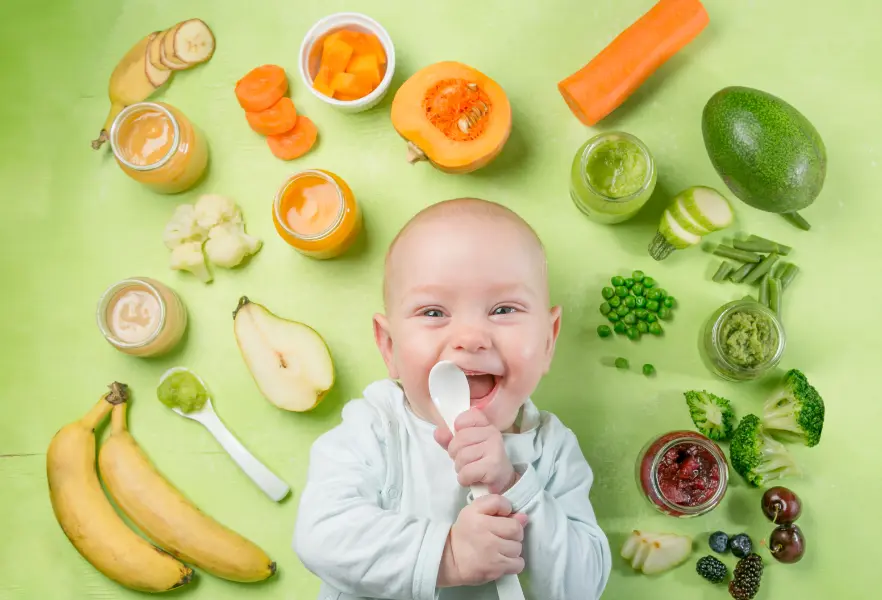
Is Banana Good For A 3-Month-Old Baby?
No, bananas are not good for a 3- month old. According to the American Academy of Pediatrics, bananas are unsuitable for a 3-month-old baby because they should be given either breast or formula milk until reaching the age of at least 4 months. Even if you think your baby is ready for solids at such an early age, there are plenty of signs to look out for to determine whether or not they are prepared to start weaning.
How Much Banana Can A 3-Month Baby Eat?
Bananas should not be given to babies at such an early age because babies may not be physically developed to swallow solids so soon, and it may also cause digestion problems.
Is Banana Good For A 4-Month-Old Baby?
Yes, bananas are good for a 4-month-old baby. But only if you think your baby is not getting enough nutrients and needs something extra to fill up their little tummies, then you can start by offering them banana puree, making it easy for them to swallow. But don’t worry if they spit it out and don’t like the taste, as solids are not compulsory at this age. Instead, you can increase their milk intake per day.
How Much Banana Can A 4-Month-Old Baby Eat?
One teaspoon of banana or even less is enough for a 4-month-old baby to eat as their first solid. This is because babies of such a young age may have trouble digesting bananas if the amount is increased and end up with tummy aches.
Is Banana Good For A 5-Month-Old Baby?
Yes, bananas are good for a 5-month-old baby as they are an excellent way to give them extra iron and carbohydrates, only if you think milk is not enough for them. You can simply make a puree or mash up the fruit and mix it with formula or breastmilk to make it a meal for them. Although keep in mind that the pH of banana can cause your child to become acidic, making them feel uncomfortable.
How Much Banana Can A 5-Month-Old Baby Eat?
Stick to offering a 5-month-old baby one teaspoon of banana twice or thrice weekly because giving too much may fill up their stomachs. As a result, they may refuse to stick with milk.
Another important reason why you should feed them bananas a few times a week is that it’s essential to keep an eye on whether your baby is showing any symptoms of allergy from eating bananas.
Is Banana Good For A 6-Month-Old Baby?
Yes, bananas are good for 6-month-old babies who show signs of development, such as being able to sit with or without support and also opening their mouths when food is offered to them, indicating that they are ready to start solids.
As they are growing up, only milk will not be enough to keep their tummies full. Hence bananas are an excellent way to keep them away from hunger and give them the extra strength needed to scream and shout, along with learning to move their bodies as babies do at this age.
How Much Banana Can A 6-Month-Old Baby Eat?
Offer bananas to your 6-month-old as finger food by peeling and cutting them up into circle-shaped pieces and letting them eat 2-3 pieces to start with. Or if you want to spoon-feed them, then ⅓ of a mashed banana per day will be enough for them either on its own or mixed with milk.
Is Banana Good For a 7-10 Month-Old Baby?
Oh yes, without any doubt, bananas are suitable for a 7-10-month-old baby. Mainly because, at this stage, babies start to explore their surroundings and become more active physically. Hence feeding bananas will let your baby gain healthy weight and also give them the energy to thrive on their new physical missions.
Besides that, bananas are a handy and filling snack that can be fed to babies even when outside. From 7-10 months, babies are usually introduced to a variety of foods; hence you can easily mix bananas with their baby food or make something soft such as pancakes, so that they can enjoy the fruit.
How Much Banana Can A 7-10 Month Baby Eat?
Well, as your little munchkin is growing up, it’s apparent that they will increase their food intake day by day unless, of course, your infant is a fussy eater.
At 7 months, feed them ⅓ of a banana per day. If you find that they are eating it willingly and it’s not causing any adverse side effects, then gradually increase the amount.
From 8-9 months, you can give your little one ½ a banana. And from 10 months onwards, one whole banana is just about enough for them to get all the iron and energy their bodies need
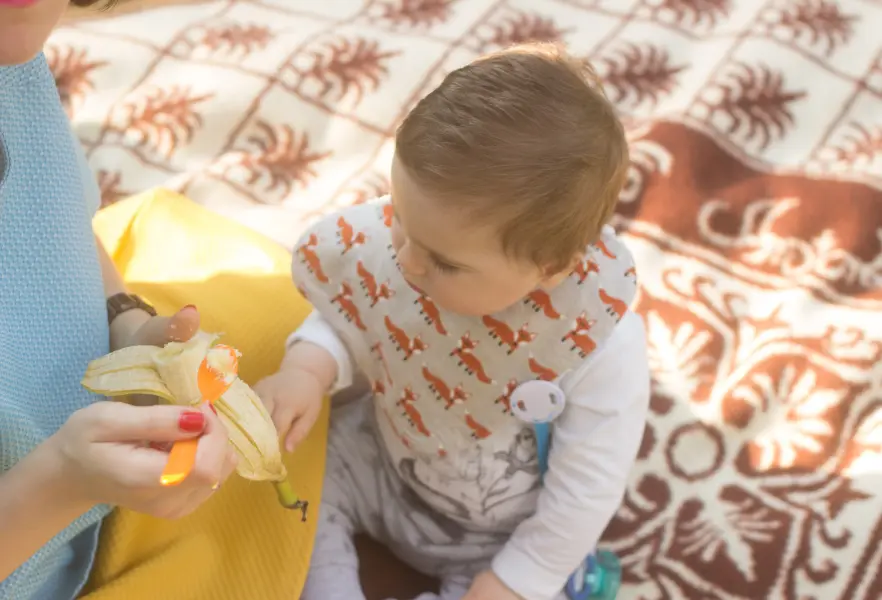
Do Doctors Suggest Bananas For Babies?
Yes, pediatricians suggest bananas for infants because of their high nutritional values and their soft and mushy texture, which makes it easier for the little ones to swallow. And more of all, it fills up those little tummies quickly, providing babies with instant energy and letting them play in a cheerful mood.
Not to mention the sweetness of bananas is something that babies are bound to like. But make sure you serve it to them in the appropriate form according to their age, as babies that are slightly more mature may not be too keen on eating banana puree but prefer to eat with their own hands.
What Is The Best Time To Eat Bananas For Babies?
Since bananas are filling, the best time to give them to your baby is when they are hungry, which is in the morning. The sugar and carbohydrates will give your little one all the energy they need to go through the day.
Some parents avoid giving too many bananas to their babies because they think their little ones might catch a cold. Well, according to parenting.miniklub summer is the best time for your babies to eat bananas or when it’s hot and sunny during winter.
The reason is if babies are suffering from a cold or cough, then bananas will increase mucus in the chest in the cold weather, possibly leading to more severe illnesses.
Can I Give My Baby Bananas In The Evening Or At Other Times Of The Day?
Since the ph of bananas is 5, the fruit can be categorized as being mildly acidic, which can cause tummy trouble for your baby. As a result, they may feel discomfort due to colic pain. Although yes, there are medications and acid reflux exercises that you can apply on your little one to help them sleep.
Nonetheless, you can also offer bananas to your babies as an evening snack or include them as a part of their early supper. But make sure to avoid giving it to them right before their bedtime, as bananas take time to digest. And sleeping slows down the digestion process, which will make your baby feel uncomfortable.
Other than that, the best time of the day to give your little one a banana is in the morning. You mix it with their cereal. Or you can offer them as a snack, maybe after lunch or in the late afternoon.
How To Make Banana Puree For Babies?
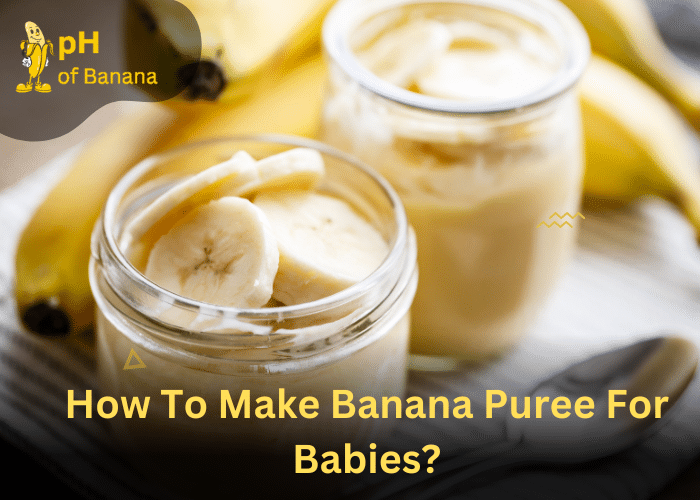
Here is a quick and straightforward recipe for first-time mommies who want to feed their little minions banana puree:
Step 1:Buy The Perfect Bananas
Usually, bananas that are sweet in taste are widely available in stores all year round and are reasonably priced too. Hence make sure you choose bananas that are ripe and have a yellow peel without any spots. As green peeled bananas mean that they are under-ripe, and those that have brown marks indicate the fruit is about to turn rotten.
Step 2: Wash The Banana And Cut It Up
When it comes to preparing baby food, maintaining hygiene is essential. Make sure you start by washing your hands thoroughly. Next, rinse the banana under plain cool water and let it dry completely. Peel the banana entirely and cut it up into little pieces.
Step 3: Make Puree
Put all the sliced banana pieces in a blender or food processor and make puree until the texture is smooth without any lumps. You can add water or breast/formula milk to achieve the perfect consistency of the puree for your little ones who still have trouble chewing.
For those babies who are over 10 months old and have learned to chew and swallow can be given mashed bananas. For that, you can use a potato masher or even your hands to prepare it.
Step 4: Offer The Puree To Your Infant
Hopefully, your minion will enjoy the banana puree, but if not, then you can add other sweet fruit to change the taste a little.
Step 5: Keep Leftover Puree In Fridge /Freezer
Use air-tight containers to keep leftover puree in the fridge, which you can feed your baby for up to 3 days. You can also freeze the puree in small plastic boxes, which will be edible and safe to eat for up to 3 months.
Banana Benefits For Babies
1. Bananas Are Convenient To Carry When Traveling
Suppose you are planning to take your baby for a little outing who has just started solids. Then simply take a banana for your infant and slip it inside your handbag. Tadaa, you and your munchkin are ready to paint the town red together!
Well, att least you don’t have to worry about finding places to breastfeed your baby or giving them the bottle in public, as bananas will keep their tummies full.
The biggest advantage of the fruit is that it’s available everywhere and reasonably priced. And most of all, you can keep it at room temperature without having to worry about the banana going rotten.
2. Lower Possibility Of Having Allergies
Because of the acids contained in bananas, the chances of your baby being allergic to the fruit is very low. However, it is still a good idea to look out for allergy symptoms when your little one starts weaning.
3. Helps to Prevent Anemia
Those babies who are anemic can get nutrients that include iron which helps to produce red blood cells and increase hemoglobin levels from bananas. But do consult your Dr to know how much to serve to your baby as too much banana can cause discomfort.
4. Good For The Eyes
Bananas contain Vitamin A, which helps to protect retinal health, meaning babies are likely to have good eyesight. Also, the potassium that is in bananas helps to improve vision.
5. High In Nutrition
Bananas for infants are an ideal source of various nutrients that are required for their growth and development. The fruit contains manganese, iron, calcium, vitamins, and other nutrients that make it a healthy snack. If your baby is suffering from a urine infection, then be sure to feed them bananas on a regular basis, as Vitamin C helps to reduce the illness.
Banana Side Effects For Babies
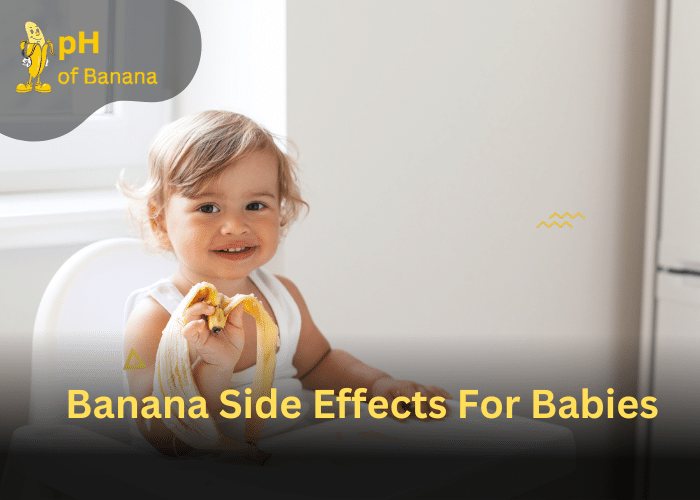
1. Stomach Pain
If the banana is not ripe enough, then it causes your little one stomach pain as the starch in these bananas are high, which makes digestion slower. Some babies also end up with vomiting and diarrhea if they are fed semi-ripe bananas.
2. Gum Infection
Since bananas contain sugar and starch, they can lead to gum infections in your babies if you don’t clean their mouths regularly.
Starches leave particles in the gums for more than a couple of hours which may lead to infection and pain in the gums.
3. Gas
If your baby suffers from colic pain, then it may be a good idea to avoid bananas as the fruit contains fructose and fiber, which increases gas and bloating. Also, the ph of a banana which is 5 makes the fruit a mildly acidic one elevating the possibility for your baby to suffer from ac
4. Constipation
Bananas that are unripe contain resistant starches and tannic acid, which is likely to increase constipation in babies, so please avoid offering them green bananas. However, fully ripe bananas help to reduce constipation making bowel movements easy for your little one.
As bananas contain fiber, it helps in making a baby’s digestive system healthier and regularly reduces constipation.
5. Excess weight gain
If your little one is overweight, then you should avoid giving them bananas as the fruit contains sugar and carbohydrates that will make them bulkier. You can always provide them with other fruits that are water-based, such as watermelons and cucumbers. You can even offer your baby citrus fruits like oranges and maltas so that they get sufficient Vitamin C.
Do Bananas Cause Stomach Aches For Toddlers?
Bananas for toddlers are an excellent way to relieve them from troubled bowel movements, but too much of it can cause gas, bloating, and stomach aches.
The reason is the fruit is filled with sorbitol which is a natural sugar alcohol that can cause problems in the tummy when large amounts are eaten. Bananas also contains soluble fiber, a carbohydrate that often causes constipation and makes your toddler gassy and irritable from stomach pain.
Is Banana Good For Babies Every Day?
According to FirstCry Parenting, yes, bananas are good for babies every day, but the amount given to them should be somewhat limited. This is because the high fiber concentration in the fruit can cause constipation in babies if too much is consumed.
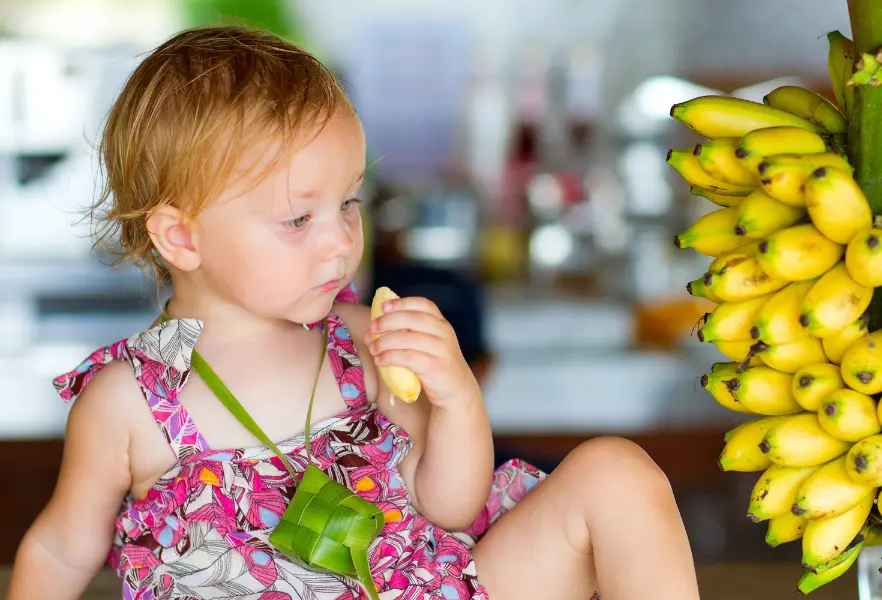
How Many Bananas Can A Baby Eat In A Day?
If your baby is already suffering from constipation, then avoid giving them bananas for the time being, as it may make it more difficult for them to poop!
However, those babies that are between 6- 9 months and have no trouble in the washroom department can easily feed on mashed bananas every day in small quantities. For babies over 10 months old, they can enjoy a few slices of one whole medium-sized banana according to their appetite, which could be every day or every alternate day.
As bananas contain sugar and carbohydrates, they can quickly fill up the tummies of your little do. Please ensure the quantity you give them is limited so they can eat other food too.
How Much Is Banana Too Much For A Baby?
The number of bananas that are too much for a baby depends on their age.As we have mentioned, the required quantity of bananas for each age group is below, so giving them anything over that would be a bad idea.
- For a 5-6 month-old baby, ⅓ – ½ of a banana is enough per serving.
- For a 7-9-month-old baby, ½ -¾ of a banana is sufficient for their little tummies.
- For babies over 10 months old, one whole banana to a maximum of 2 is okay in one sitting. Anything above that is considered as too much.
How Much Banana Can A Baby Eat In A Week?
Although bananas for infants are an excellent source of energy and nutrients, too much of it can cause them to have trouble with bowel movements and also gain excessive weight.
Hence babies that are at the stage of eating purees can be given two bananas per week in that form. At the same time, those babies that can eat solids can be offered small-sized bananas every day or every alternate day of the week, depending on their appetite.
Are Overripe Bananas Safe To Eat For Infants?
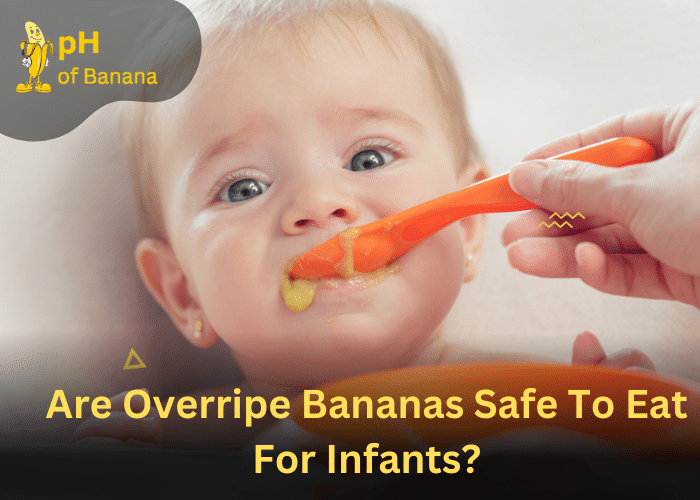
No, overripe bananas are not safe to eat for infants. Because these bananas indicate that they are on the verge of rotting and tend to release liquid and give out unpleasant smells which your little one may not be too fond of.
In fact, making a puree with overripe bananas can make the texture slimy and appear brown in color, which will not be wise to serve to your baby.
Do Bananas Help Babies To Sleep?
Yes, bananas help babies to sleep, especially if you have a baby like mine who is reluctant to sleep and keeps the whole house alive till midnight. Then I suggest you give them bananas as an evening snack to calm them down and make them sleepy. Trust me, and it works as I apply this technique to my little one when I feel under the weather and need rest.
Do you know why the fruit helps babies to sleep? Bananas are filled with the nutrients magnesium and potassium that helps in muscle relaxation. This will calm your baby’s body and mind and help them doze off
Bananas also have carbohydrates that cause drowsiness and make babies sleepy. However, avoid giving babies bananas for supper as it may cause Them to be colicky. Instead, offer it to them as an evening snack so that by the time it’s time for bed, they should be relaxed little sleepy heads.
Can Too Much Banana Make Toddlers Sick?
Yes, too much banana can make toddlers sick. Although bananas for toddlers are a great provider of minerals, carbohydrates, iron, and nutrients, too much of fruit can make them sick. This is because the little ones may end up with digestive problems due to the high concentration of fiber in bananas which is likely to cause constipation or diarrhea.
How Long Does It Take For Bananas To Digest For Kids?
Ripped bananas take about 30 minutes for adults to digest; therefore, you should give your baby at least an hour for them to digest bananas properly. Otherwise, the pH of the banana makes the fruit mildly acidic and may cause discomfort in babies if not digested properly.
How Much Banana Nutrition Does A Baby Need?
Well, that depends on your baby’s age and the amount they can have per serving.
- 6-7-month-old babies can have ⅓ of a banana per serving
- 8-9-month-old babies can have ½ of a banana per serving
- Babies that are over ten months old can be offered one whole banana.
Anyhow you can check exactly how much banana nutrition your baby needs from the table below, as we have given the nutrition values of medium-sized bananas that are usually 100 gm each.
| Nutrients | 6-7-month-old babies ⅓ of a banana | 8-9-month-old babies½ of a banana | Babies over 10 months old1 whole banana |
| Sugar | 4.62 gm | 7 gm | 14 gm |
| Calories | 34.7 | 53 | 105 |
| Magnesium | 10.5 mg | 16 mg | 32 mg |
| Vitamin C | 3.3 mg | 5 mg | 10 mg |
| Carbohydrates | 9 mg | 13.5 gm | 27 gm |
| Fat | 0 | 0 | 0 |
| Potassium | 139.3 mg | 211 mg | 422 mg |
| Fiber | 1 gm | 1.5 gm | 3 gm |
| Protein | 0.33 gm | 0.5 gm | 1 gm |
| Vitamin B6 | 0.13 mg | 0.2 mg | 0.4 mg |
Is Mashed Banana Ok For Infants?
Yes, mashed bananas are ok for infants since infants need to learn the function of their mouths properly, which includes chewing. That’s why mashed bananas are ideal for them as it makes swallowing easier.
But if you notice that your munchkin is not eating mashed bananas the way they used to mix them with their cereals, then or even make them a sweet dish such as banana custard so that they still eat it.
Although do make sure you never have your little one alone with food, even if it’s bananas, as there is always the possibility of choking or even vomiting.
Can Babies Eat Bananas?
Yes babies can eat bananas, although breast or formula milk is sufficient for babies till six months. They can be introduced to bananas after they reach a minimum of 4 months. But please do not force feed your baby at such a young age as they may vomit or face other problems such as bloating.
At what Age Can Babies Have Bananas?
Bananas can be given to babies as their first solid food at the age of 6 months. Although some parents do offer banana puree to their child at the period of 4 months, in this case, it is recommended to take a doctor’s advice to assess whether the little one is ready to feed on anything else besides milk.
Conclusion
Bananas for infants are an excellent source of nutrition as the fruit contains multiple nutrients that help babies to grow and develop properly. However, do give it to your little ones only when they are ready to swallow and digest them.
Make sure you keep in mind the quantity that is ideal for babies according to their ages, as overfeeding bananas could cause stomach-related problems. While the fruit is healthy, delicious, and filling, it must be avoided if your child is suffering from a cold, as bananas tend to increase mucus in the chest.
And yes, don’t just stick to mashed or purees, as your baby will eventually get fed up with the same food. Try different recipes, such as banana milkshakes or even banana pancakes which they may enjoy.
So there you have it, mommies, it’s time to go bananas! I hope you find the article “Banana For Infants: Are Bananas Good For Babies?” helpful.
Also Read:
Korean Banana Milk: Road to Healthy Life

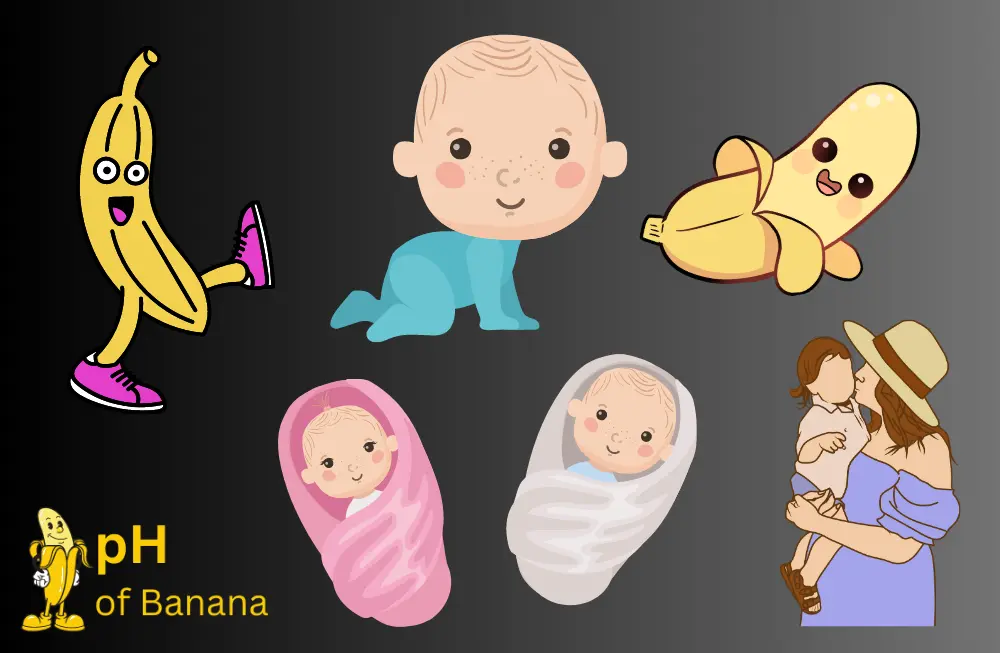
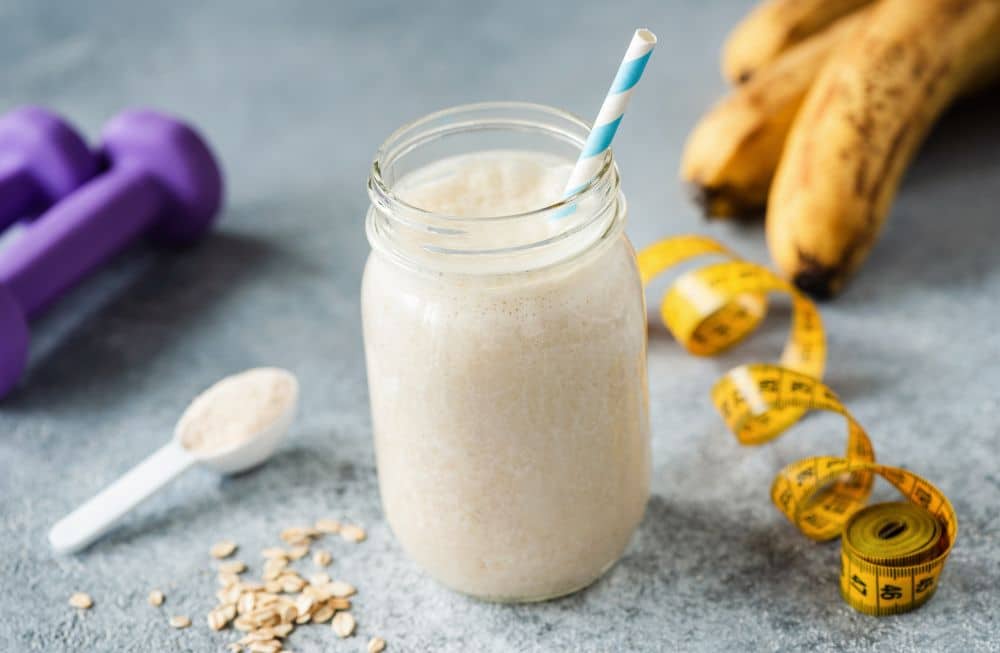
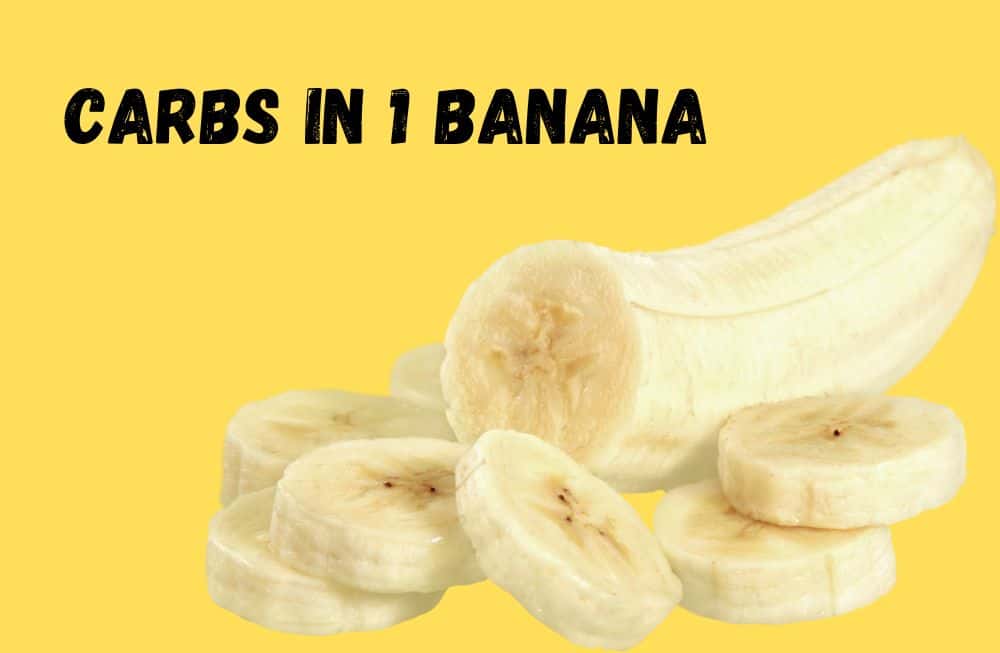
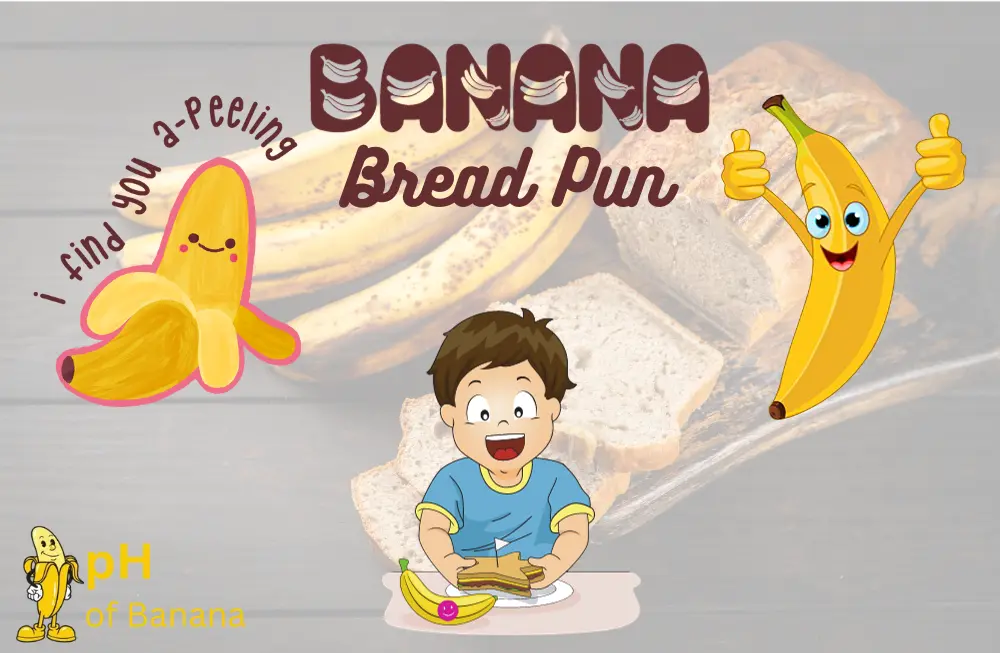
![Sodium In Banana [ Nutritional Information & Health Benefits] 12 Sodium in Banana](https://phofbanana.com/wp-content/uploads/2022/07/Sodium-in-Banana.jpg)
